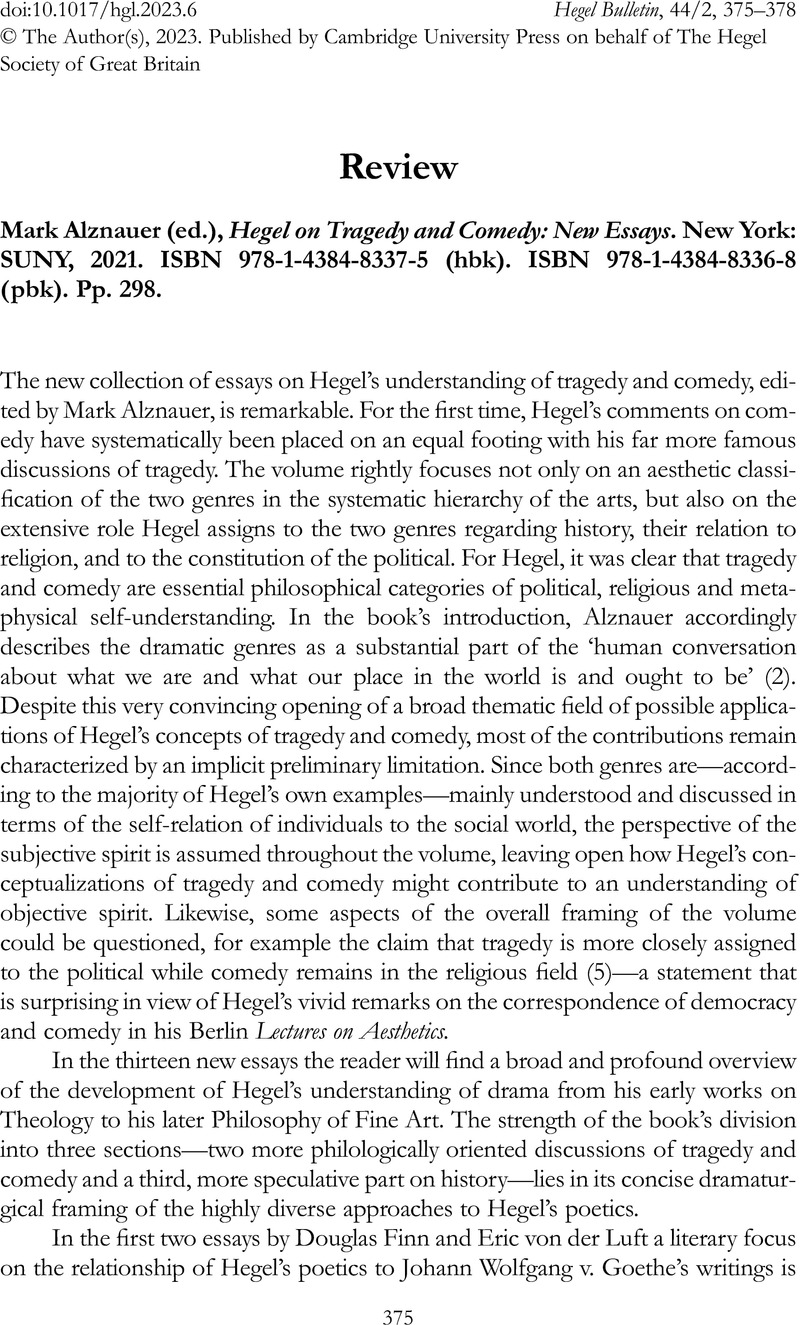No CrossRef data available.
Article contents
Mark Alznauer (ed.), Hegel on Tragedy and Comedy: New Essays. New York: SUNY, 2021. ISBN 978-1-4384-8337-5 (hbk). ISBN 978-1-4384-8336-8 (pbk). Pp. 298.
Review products
Mark Alznauer (ed.), Hegel on Tragedy and Comedy: New Essays. New York: SUNY, 2021. ISBN 978-1-4384-8337-5 (hbk). ISBN 978-1-4384-8336-8 (pbk). Pp. 298.
Published online by Cambridge University Press: 21 February 2023
Abstract
An abstract is not available for this content so a preview has been provided. Please use the Get access link above for information on how to access this content.

- Type
- Book Review
- Information
- Copyright
- Copyright © The Author(s), 2023. Published by Cambridge University Press on behalf of The Hegel Society of Great Britain



